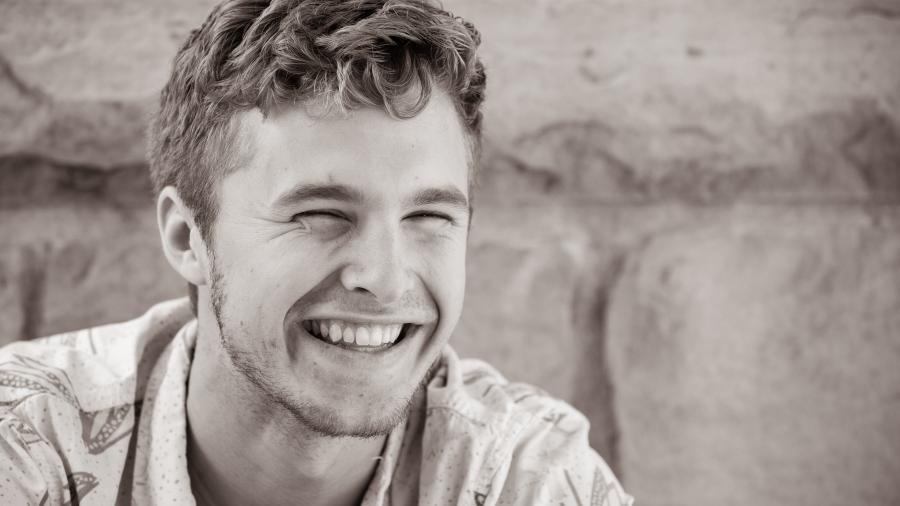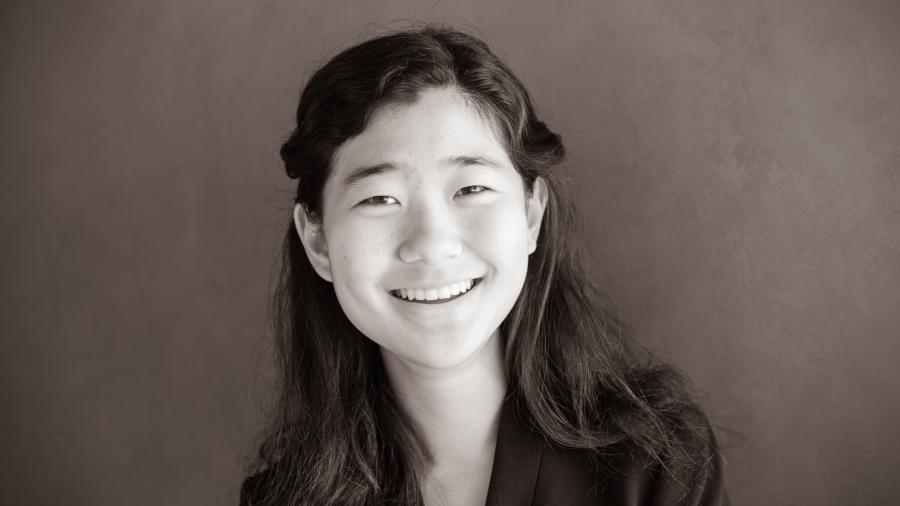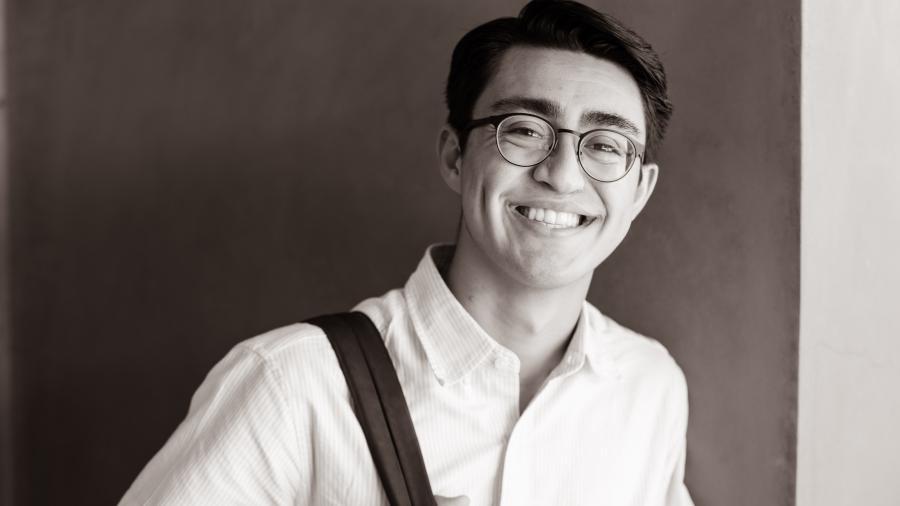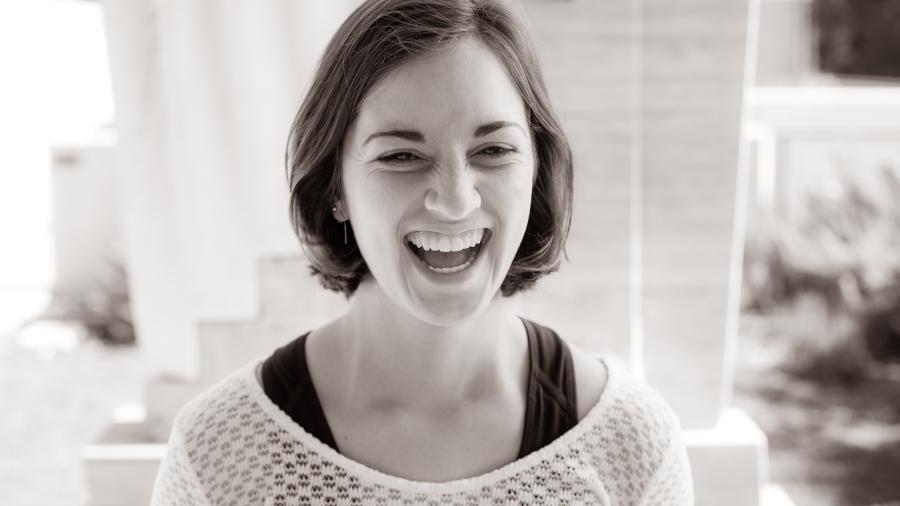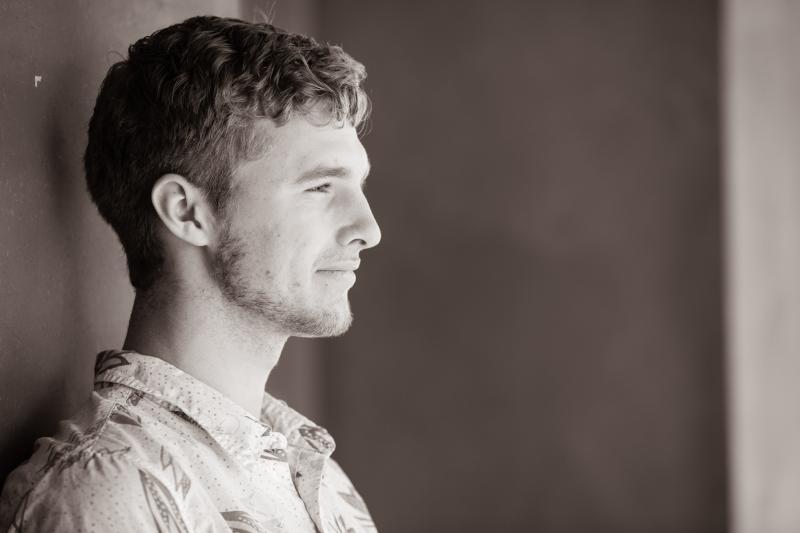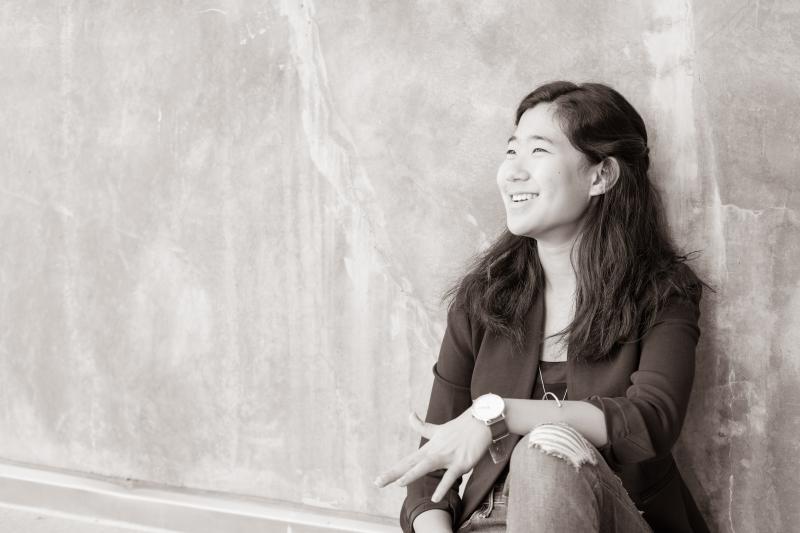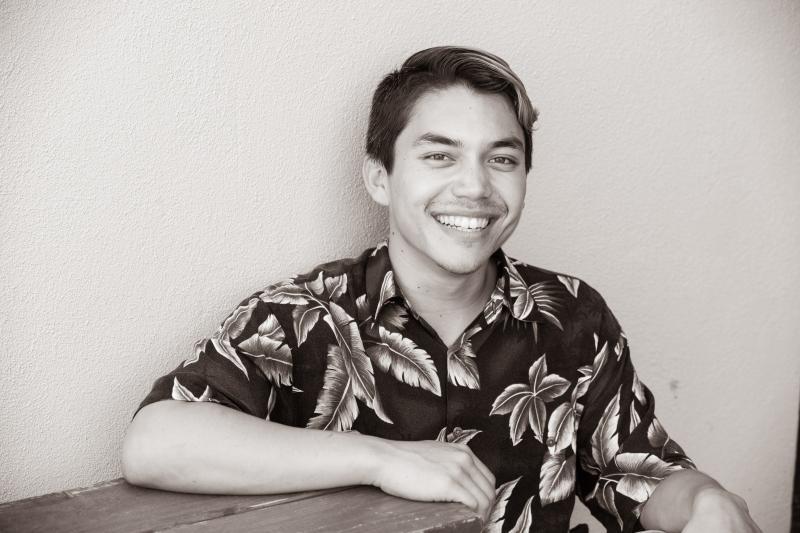Westmont Magazine Helping All Students Succeed
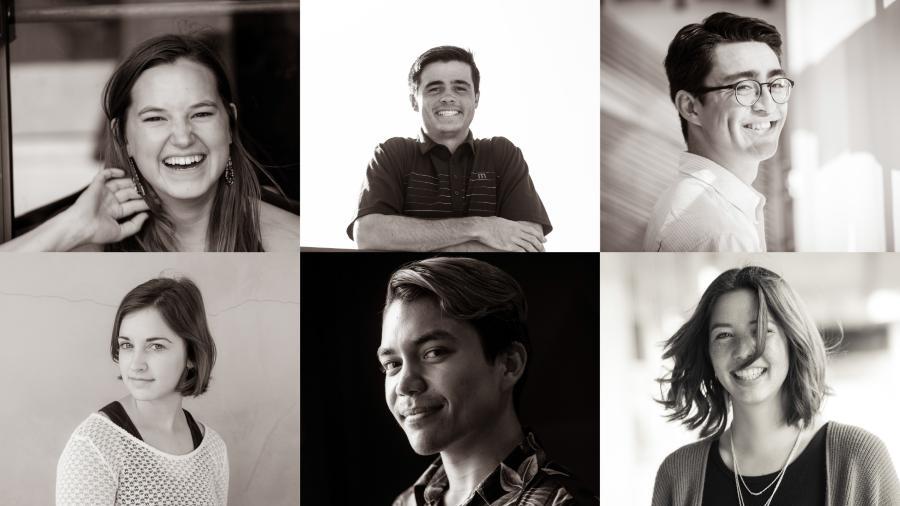
THE GIFT
How can Westmont help all students succeed? President Gayle D. Beebe got a glimpse of one strategy at work in his own family. His daughters, Anna and Liz, sat down with their brother, Ricky, before his first day on campus. The two Westmont graduates advised him about potential classes and activities and shared stories of their life in college. “I think all students should benefit from this kind of guidance from fellow students,” Beebe says.
Nationwide, college and universities are exploring ways to help more students graduate. Programs include peer tutoring and mentoring, improved academic advising and quick intervention when students begin to struggle. At Westmont, professors and student life staff have long worked together to help students make the most of their education.
To help Westmont strengthen efforts in this area, an anonymous donor has given $2 million toward a Center for Student Success. The new initiative, now taking shape, will coordinate every facet of the Westmont experience so all students can achieve their potential.
“This great development in the life of the college will provide our students with the latest and best resources for succeeding not only in the classroom but as they launch for life,” Beebe says.
“The gift boosts our efforts to help students flourish in their academic work and their personal lives,” says Provost Mark Sargent. “We’ll expand our abilities to mentor, tutor and advise students as they begin their studies, caring for and supporting them through the familiar challenges of rigorous academics. Not only will more students start well, but many will develop greater confidence and vision for their lives after Westmont.”
“We seek to give every student the support they need to succeed from their first semester to their last—and to flourish well beyond Westmont,” says Edee Schulze, vice president for student life. “Achieving this goal takes collaboration between Student Life and professors, something Westmont does well.”
Known for attracting and graduating high-achieving students, Westmont already provides structured guidance from the time they enroll until they leave. The new center will help bolster this support where it’s most needed to prepare students for success during and after college.
THE NEED
According to the National Center for Education Statistics, only 60 percent of the students who enrolled in four-year colleges and universities in fall 2010 graduated within six years. In contrast, 73 percent of Westmont students earned a degree in four years. Many student success initiatives focus on graduating more students.
With a concerted, 10-year, campus-wide effort, Georgia State University raised their six-year graduation rate from 32 to more than 70 percent. They improved academic advising and started analyzing data about students to identify those at risk of dropping out.
The Student Success Center at Cal Poly Pomona has become so popular, students need to make appointments two weeks in advance. Fortunately, the center also offers daily drop-in hours. Both professional and peer advisers meet individually with struggling students.
But student success focuses on more than just grades, retention and the graduation rate. College officials face a growing epidemic of anxious students.
A Time magazine cover story in November 2016 announced, “The Kids Are Not All Right: American teens are anxious, depressed and overwhelmed.” In October 2017, a New York Times article asked, “Why Are More American Teenagers than Ever Suffering from Severe Anxiety?” In its annual survey of students, the American College Health Association found a significant increase— to 62 percent in 2016 from 50 percent in 2011—of undergraduates reporting “overwhelming anxiety” in the previous year.” Like all college counseling centers, Westmont has seen a jump in the number of anxious students.
Explanations for this anxiety range from lingering economic uncertainty since the 2008 recession, a decline of close relationships tied to smart phone use, insecurity due to seemingly perfect and accomplished lives curated on social media, relentless competition to get into elite colleges, and over-involved parents.
“College of the Overwhelmed: The Campus Mental Health Crisis and What to Do About It” examines factors that create stress for students, such as relationships, sexuality, roommate problems, academic pressures, extracurricular demands, parental expectations, and racial and cultural differences. The authors, Richard Kadison and Theresa Foy DiGeronimo, offer solutions to help students overcome these challenges.
In 2004, Hara Estroff Marano identified parents as the problem in article for the Journal of Psychology, “A Nation of Wimps.” “Parents are going to ludicrous lengths to take the bumps out of life for their children,” she said. “However, parental hyper-concern has the net effect of making kids more fragile; that may be why they’re breaking down in record numbers.” Four years later, she published a book, “A Nation of Wimps: The High Cost of Invasive Parenting.”
Other work echoes this theme. In “The Coddling of the American Mind: How Good Intentions and Bad Ideas Are Setting Up a Generation for Failure,” Greg Lukianoff and Jonathan Haidt criticize colleges and universities for instituting “vindictive protectiveness.” By keeping students safe from uncomfortable ideas and words, institutions are “creating a culture in which everyone must think twice before speaking up, lest they face charges of insensitivity, aggression, or worse.”
For students to flourish in college and in life, they need to learn how to manage their own lives, weather adversity and discomfort, and recover from failure. Resilience and grit help them achieve these goals. Westmont has always worked to support students and will build on those efforts— and will continue to challenge them appropriately.
THE PLAN
“The Center for Student Success seeks to help every student achieve peak performance,” Schulze says. “Just as athletes train to reach their peak performance, we want students to thrive in all areas of their college life.”
As the center’s work begins, college staff will focus on basic academic skills, like a coach who starts with drills, dribbling, free throws and conditioning.
• Reading
• Writing
• Taking notes
• Study skills
• Managing time
Some students need to improve in one or two of these areas; some require help in all to do their best work.
The center will develop students who can assist fellow students, building on existing programs. Existing programs include Writers’ Corner, where a team of trained student writers help their peers complete writing assignments and improve their work. Student tutors in difficult classes such as chemistry and Old and New Testament also receive training and hold weekly study sessions to help students prepare for exams.
Peer coaching will help students develop clear goals and build skills such as time management, self-advocacy and networking to achieve their long-term objectives. The center will also advise professors on ways to support students.
Another goal is equipping students to solve their own problems. “We have to do more than just increase counseling services for our students,” Schulze says. “We must develop other strategies to help students improve their resilience and increase their emotional capacity to handle the challenges of college—and eventually of life.”
The Center for Student Success begins as a decentralized network of programs and initiatives woven throughout the entire college that will expand in the coming years. Building on a tradition of support for students, the center will heighten the college’s efforts to help everyone succeed. Eventually, Westmont plans to create a physical space to house some of these initiatives.
THE PROGRAMS
For the first time this fall, professors completed an Early Alert Survey for each class to identify students who might benefit from some assistance. Instead of waiting until after midterm exams, professors now report concerns about students early in October and connect directly with them to support and encourage them. CARES, a new online tool, allows professors to flag struggling students and monitor their progress. The software makes it easy for professors to engage with these students.
Student tutors and teaching assistants have long provided peer-guided learning on a departmental basis. Patti Hunter, vice provost, and Stu Cleek, dean of students, are working together to create a college-wide, systematic approach to tutoring and student coaching that will include recruiting and training.
Both Hunter and Cleek have received the Jane Higa Academic and Co-Curricular Partnership Award for continuing the productive relationship between faculty and student life staff members that Higa cultivated as dean of students.
“What we’re doing on this project epitomizes Westmont’s long tradition of coordination,” Hunter says. “A Westmont education includes everything students do, whether in class, in a lab, on a playing field, in a club or during a campus activity. It all contributes to their growth and flourishing. Stu and I have deep respect for each other’s areas.”
“We meet regularly to flesh out the plan, and we’re excited about opportunities to take a more focused approach to supporting students,” Cleek says. “Westmont has historically done well at providing support for students who end up struggling in one way or another. The new center will help us identify specific areas for growth and proactively provide resources and support before students begin to struggle. We’ll use tools to measure their reading, listening, writing, self-regulation, time management, response to anxiety, and oral presentations. Students will then receive feedback and personalized plans for developing strengths in areas of weakness.”
Registrar Michelle Hardley, another recipient of the Jane Higa award, restructured her team last year to create a full-time coordinator of academic support services. Sonya Welch oversees academic advising and teaches the semester-long, one-unit Successful Scholar Seminar. She meets individually with students to assess their needs and recommends resources and strategies for them. They often share issues that interfere with studying, such as roommate problems or anxiety. When appropriate, Welch provides direct coaching in preparing for tests, managing time and priorities, taking notes and engaging with professors. She also holds monthly workshops in the Dining Commons on topics such as social media etiquette, time management and note-taking. Students bring their dinner, their syllabi and their calendar and work as they eat.
“For the first time, students control their own schedule, and no one is looking over their shoulder,” Welch says. “We help them learn how to manage their workload and tell them about the services available. College classes move twice as fast as high school classes, and we empower students to manage the greater demands of college.” The Center for Student Success will help organize the various services available to students around campus and fully inform them of these resources.
This fall, some first-year students took Starting Well, a seminar designed to help them develop good study skills and make the transition from high school to college. Welch taught one section, and Dan Taylor, assistant director of residence life, led the other.
Paul Bradford became director of career development and calling in 2016, and he encourages students to start preparing for life after college. Realizing that he may not get many students into his office, he has reached out to professors. “I’m speaking in more and more classes to let students know about our services and tying the presentation to the particular class or major,” he says. Topics include the Strong Interest Inventory, potential local internships, LinkedIn and effective resumes.
For example, Enrico Manlapig, an economics and business professor, invites a guest from the Santa Barbara business community to speak in his class each Friday. “We help students prepare with relevant questions,” Bradford says. “We ask them, ‘What did you do to prepare for our meeting today? Did you start with LinkedIn and then look at the company’s website and industry?’”
Handshake, a new online tool, helps students find internships and part-time jobs on campus and in the community. It also connects them to alumni with job opportunities. It includes more than 2,500 jobs and internships throughout the nation.
Career Café brings employers to the Dining Commons so students see some of the opportunities available. Sergio Hernandez in the alumni office also holds an annual alumni-student networking event each spring.
For the fall semester, Career Development and Calling has reached 401 students through 19 events and met with an additional 102 students for individual coaching sessions.
Mary Logue, director of library services, reworked one of her staff positions to create a coordinator for library academic initiatives and hired Theresa Covich, an adjunct English professor, to boost student success. The library first got involved with tutoring last year during a pilot program with students holding study sessions for exams in Old and New Testament, general biology and calculus 1 and 2. Covich trains student tutors, consults with and supports academic departments, and works closely with Sonya Welch in the registrar’s office.
“We see ourselves as supplementing the academic program outside the classroom,” Logue says. “We work directly with departments and seek to make the library a true learning commons where students and professors come to interact and discuss what happened in class.”
Librarians continue to provide instruction about finding and evaluating sources, and they staff the Research Help Desk five days and four evenings each week. They also work individually with students requesting assistance.
Sometimes students struggle in their personal lives rather than in class. A professor, staff member or fellow student encountering someone in distress can submit a Student Concern Notification on the Student Care webpage (westmont.edu/student-care). The Student Care Team, which includes staff from Student Life, the Registrar’s Office, Health Services, Counseling Services and Disability Services, coordinates support for the student. The Counseling Center has posted resources on their website to help the community identify students in distress.
Students who want to improve their writing can get help from Writers’ Corner. Trained student tutors assist their peers with a variety of writing projects, ranging from literary analysis to lab reports. Nominated by professors, the tutors take a two-unit training course to learn about different genres and audiences and strengthen their grammatical and mechanical skills. Rather than proofreading papers, tutors advise students how to make a compelling case using appropriate evidence, cogent arguments, a good structure and the appropriate style to engage the reader.
“We seek to empower students to become more mature writers,” says Sarah Skripsky, associate professor of English and director of Writers’ Corner. “They learn a more robust writing process that includes note-taking on source material, a focus on planning, writing full paragraphs and revising beyond copy editing.”
Skripsky shares lessons she has learned from mentoring students. “I try to draw them out and figure out what motivates them,” she says. “I listen hard for the things that are tough for them. How does each student learn? What passions do they have? What do they love to do? I want to know their heart better and discover where they think God is calling them.”
THE ASSESSMENT
How will Westmont determine the success of its new center? First, the college will look at traditional benchmarks, such as grade-point averages, how many students return to Westmont each semester and the number who graduate. They will also determine if students are thriving. The Thriving Quotient (thrivingincollege.org/the-thriving-quotient/) measures five areas that align well with a Westmont education:
• Engaged learning
• Academic determination
• Positive perspective
• Social connectedness
• Diverse citizenship
Finally, Career Development and Calling will track graduates. The First Destination Survey focuses on what students do right out of college. The college will also collect information about alums five and 10 years after they graduate.
Stay tuned to hear how it turns out and learn more about how students are succeeding at Westmont.
A COMMUNITY OF LEARNERS
During his semester with Westmont in Mexico, Gabe Grabowski ’19 loved speaking Spanish and learning about and being a part of Mexican culture. When he returned to campus, he started tutoring students in Spanish to get more opportunities to speak the language.
He spends two evenings a week in the library working individually with Spanish students. “A lot of regulars come by, and I enjoy watching them grow as Spanish speakers,” he says. “One of my goals is empowering students to find answers for themselves and make myself obsolete. I’ve learned to let the student hold the pen—to focus on helping each one learn and not just get an answer from me.”
Gabe never sought tutoring for himself. Now he thinks he would have benefitted from it and encourages all Spanish students to come by not just to get practice speaking but to spend time with each other and form a community.
A co-leader of the Potter’s Clay vacation Bible study team, Gabe has done some translation for the ministry. “The pastors I’ve met in Mexico have really influenced me,” he says.
He comes from Spokane, Washington, and majors in both Spanish and history. “I love the conversations we have in history classes,” he says. “I think we can ask good questions of the past and the present.”
Gabe has applied for a Fulbright Scholarship to hold writing workshops in Argentina for a year in 2020. He has also asked about working with Westmont in Mexico in fall 2019. He thinks about pursuing teaching or writing as a career.
“Westmont professors really care for students,” he says. “That’s why I want to be a teacher and a good tutor.”
CONNECTING WITH STUDENTS PERSONALLY
When Karis Cho ’21 sat down with a fellow student to review a paper, she realized she needed to connect with the client personally. To put the student at ease, she asked about classes and activities and listened carefully. Before even seeing the paper, she discovered her client’s anxiety about this first college writing assignment.
“Emotional support can matter more than advice on grammar and structure,” Karis says. “I praised the strengths of the paper, offered some suggestions for improvement, and encouraged the client as a writer. I want to help students become better writers, not just fix their papers.”
An Augustinian Scholar and English major in her second year at Westmont, Karis began tutoring at Writers’ Corner this fall. She meets with students and takes a training class from Professor Sarah Skripsky, learning the theory behind writing centers and how best to help students strengthen their skills. She’s working on a paper herself about the role of laughter in tutoring. “Humor helps people relax and open up to more difficult or sensitive conversations,” she says. Like all Writers’ Corner tutors, she keeps a log, documenting her work with students and reflecting on what she has learned and how she can improve.
Karis also serves as a teaching assistant (T.A.) for Old Testament scholar Sandra Richter, Robert Gundry professor of Biblical studies. Working with Theresa Covich, coordinator for library academic initiatives, Karis leads a weekly two-hour study session for Old Testament students to help them succeed in the class and prepare for exams. Not only does she review course material, but she discusses how to study effectively and synthesize information. “I tell students what they need to know and how they can know it,” she says. Grading Old Testament exams helps Karis see where students are struggling and provides insights for her tutoring.
“I often function as a counselor as well as a tutor, encouraging students and talking them through issues with their work,” Karis says. “It’s a great learning experience for me too as someone interested in both teaching and spiritual formation.”
DEVELOPING A PHILOSOPHY OF TUTORING
Caleb Rodriguez ’19 became a tutor for Writers’ Corner when a professor recommended him for the job. He took the required class, learned about theory and developed his own philosophy of tutoring. For example, he approaches first-year students differently than those in their second or third year.
“I tend to be more proactive with them because they’re just starting to figure out how to write at the college level,” he says. “I try to give more experienced writers the room to see their own mistakes, and I ask them why they did something before recommending changes. I want to keep the integrity of their voice but also meet the demands of academic grammar.”
After reviewing a paper, Caleb develops a plan for improving it, giving the client options. “We work together,” he says. “It’s not just me editing. They’ll read the paper out loud, and I’ll make recommendations and ask if they want to make the changes. I love being part of the creative process and helping students learn to write better.”
After his sophomore year, Caleb spent the summer in South Korea and Taiwan with Emmaus Road, teaching English to children. Part Korean, he visited the city where his grandmother grew up. Teaching cross-culturally has helped him tutor students who speak English as a second language.
Caleb keeps busy singing in choir, serving as a copy editor for the Horizon and volunteering for the Sea Center and the Environmental Defense Center in Santa Barbara. He thinks about attending law school. Committed to activism and social justice, he wants to combine his passion and the skills from his two majors, biology and English, to become a lawyer who helps people.
